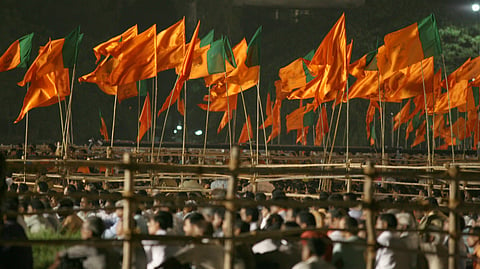The cost of conscience
About a third of the way through Megha Majumdar's lean, propulsive novel A Burning, published in early 2020, the protagonist tells a reporter who has come to visit her in jail: "You must understand my childhood to know who I am, and why this is happening to me." A young woman living in a Kolkata slum, Jivan is awaiting trial after being arrested on charges of "crimes against the nation" for an attack on a train that killed 112 people. She is, however, innocent. A risky post on Facebook, along with an unfortunate set of coincidences, has allowed the state to link her to the attack as an accomplice of shadowy terrorists who have already fled "across the border".
Over the course of several interviews with the reporter, Jivan recounts a life defined by poverty and helplessness. The story begins with her childhood in a mining town, from which her family is unceremoniously evicted to allow for new mines. During the demolition of their home, her father is assaulted by the police and seriously injured. The family's move to the city is accompanied by further misfortunes until Jivan is compelled to drop out of school and take up a job to support her family; as a sales clerk at a retail store, she is finally able to imagine a path out of destitution. But the charges that have been brought against her, Jivan seems to be implying, are in keeping with her past misery.

